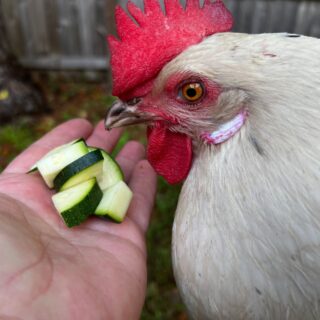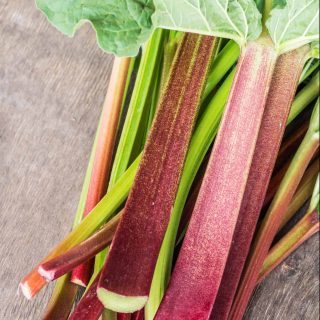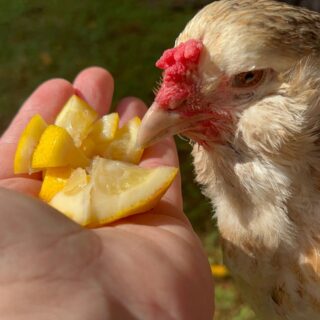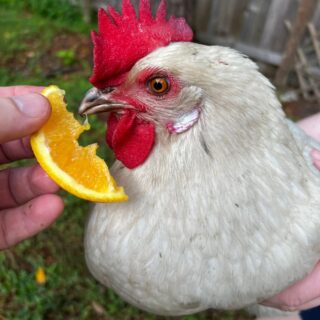Nothing feels more summery or satisfying than biting into a fresh, juicy, sweet nectarine on a warm afternoon. It's such a pleasant experience, obviously, you will want to share it with your favorite feathered friend. But, can chickens eat nectarines or will your friendly gesture take a toll on your chickens health?
Keep reading to find out if your chicken can enjoy a tasty nectarine or if you will turn out to be the Brutus to their Julius Caesar.
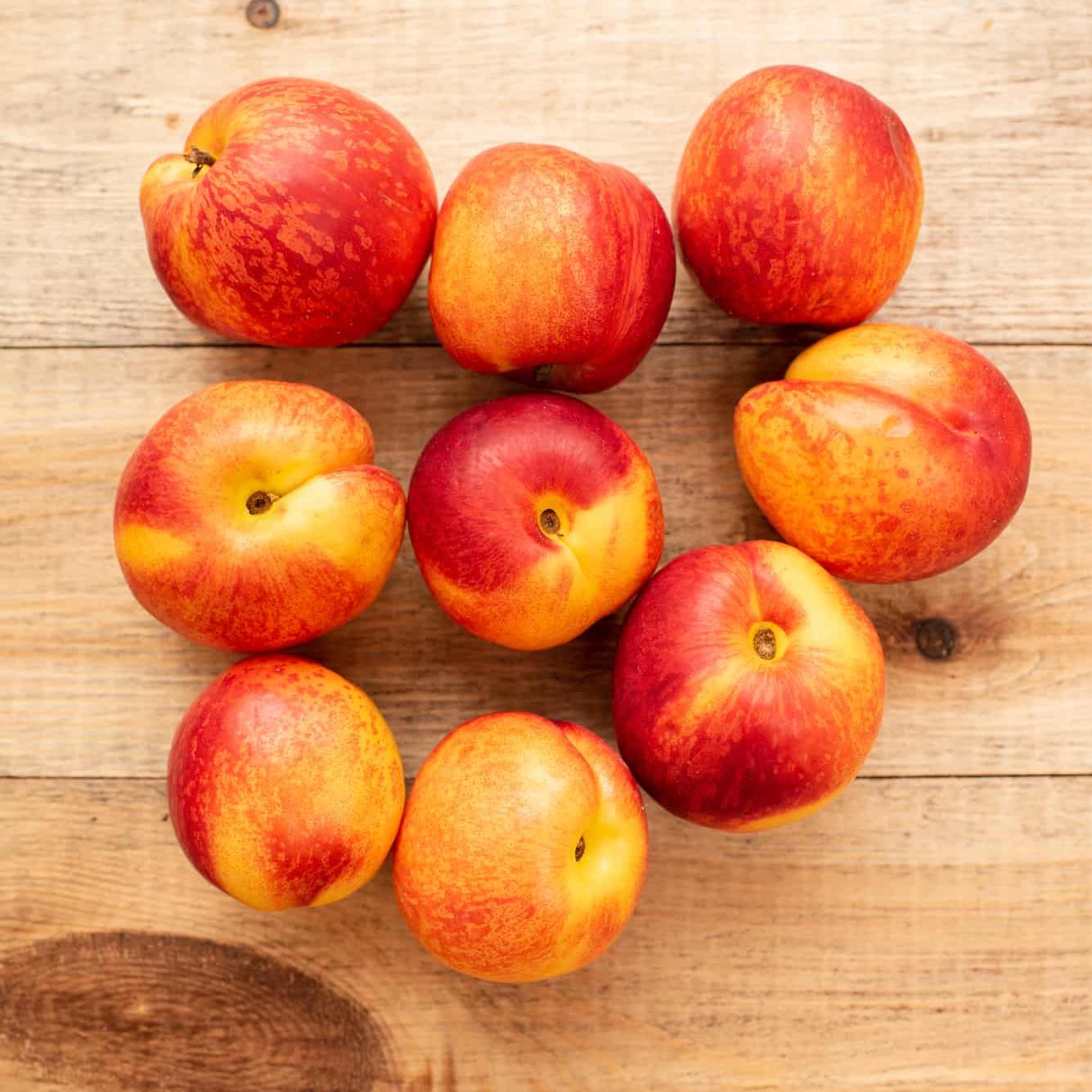
[ez-toc]
Can Chickens Eat Nectarines?
Yes, chickens can eat nectarines. Not only can they, but they will wholeheartedly devour any you offer to them. You should, however, feed them sparingly as they contain a high amount of sugar which can be harmful if fed too often.
But, when fed in moderation, your chickens will benefit from the vast amount of vitamins, minerals, and other nutrients packed into nectarines. The only danger is the pit (like in peaches) can be toxic, but they are large enough that it's unlikely your chickens will eat them; but you can always remove the pit before feeding anyway.
Is it safe for a chicken to eat a nectarine?
There is very little danger involved when feeding nectarines to your chickens. Overall, the entire nectarine is safe for them to eat; both the flesh and the skin.
Can chickens eat a nectarine pit?
Nectarines, like peaches, cherries, and apricots, are stone fruits. What that means is they have a large stone like seed, also called a pit. The reason being is because it contains amygdalin. Amygdalin is dangerous because it will turn hydrogen cyanide. Cyanide, in large enough quantities, can make your chickens very sick and even, in large enough doses, be fatal.
For the most part, this is just good information to have. It's unlikely your chickens will try to eat the pit. It is very hard and not very flavorful, especially compared to the juicy nectarine surrounding it.
Need some help keeping your chickens health and care taken care of? Check out the Organized Chicken Keeper for an easy to follow system.
Are the leaves and nectarine tree poisonous to chickens?
Yes, everything other than the actual nectarine is toxic. The leaves, bark, and seeds, as we discussed above, all contain cyanide and are dangerous if consumed.
Are nectarines healthy for chickens?
Despite the leaves, tree, bark, and pit all being toxic, the actual nectarines are a good and healthy treat for chickens. Your chickens immune systems will definitely benefit, due to the high level of vitamin C and other antioxidants. Nectarines are also full of water and can help keep your flock hydrated.
Much like other fruits that chickens can eat like lemons, papaya and oranges, nectarines MUST be fed in moderation. Even though they have a ton of vitamins, minerals, and other beneficial nutrients, they are also packed with sugar.
Too much sugar, just like with humans, can be very harmful to your chickens. Excess sugar can lead to many health issues; one of the worst being hypoglycemia.
Hypoglycemia in chickens
Most of the time we think of hypoglycemia as something that happens to people with diabetes. But that is not the case. It can happen to most of us and many animals, too. Essentially, hypoglycemia just means low blood sugar.
When your chickens eat sugar their body breaks it down and converts it into glucose. Glucose is one of the primary ways the body gets energy. By energy, we don't just mean it in a sense of having the energy to run or jump. While those are ways the body uses energy, it also takes energy to keep their internal organs running, as well.
When the body has an overabundance of sugar, they will get a sudden spike of energy (hyper-glycemia). Think of a little kid the day after Halloween. But glucose burns very, very quickly leading to a sudden drop in their blood sugar level (hypo glycemia). Think of that same little kid about an hour later.
That sudden depletion of glucose, depending on how severe, can throw a chicken's entire system out of whack. The result can be anything from being a little dizzy and disoriented all the way up to loss of consciousness and even death.
We don't mean to scare you. It's easy to avoid hypoglycemia. Just make sure you monitor what your chickens are eating and they will be just fine.
What are the nutritional benefits of nectarines for chickens?
The table below, courtesy of the USDA FoodData Center, has a breakdown of the nutritional analysis based on a serving size of 1 medium sized fresh nectarine (142g).
| Name | Amount | Measurement |
|---|---|---|
| Water | 130 | g |
| Energy | 67.6 | kcal |
| Protein | 1.34 | g |
| Carbohydrates | 14.8 | g |
| Fiber | 2.2 | g |
| Fat | .397 | g |
| Sugars | 12.3 | g |
| Calcium | 5.88 | mg |
| Potassium | 179 | mg |
| Folate | 8.82 | µg |
| Vitamin C | 6.03 | mg |
| Vitamin A | 35.3 | µg |
What do these nutrients do?
Here is a brief rundown of what some of nutrients on the table above mean for your chickens' health.
- Antioxidants: (Beta Carotene, Lycopene) repair damage from free radicals, fight off/prevent future damage, protect from oxidative damage, anti-inflammatory, lower blood pressure, improve heart health in high enough doses, development and health of tissue, skin, and feathers
- Vitamin A: eye, skin, respiratory, and digestive health
- Carotene, Beta (Beta Carotene): egg, feathers, skin, beak, and comb color; converts to Vitamin A
- Vitamin C: joint, cellular, and immune health; collagen synthesis
- Calcium: bones and egg shell strength
- Carbohydrates: give chickens energy
- Fiber: only small amounts or they can become constipated, get a blockage, etc; energy, growth, and digestive health
- Folate (B Vitamin): folate deficiency; helps blood formation; healthy feathers & size
- Potassium: temperature control; hydration & electrolyte regulation, metabolism; heart health/heart disease preventative
How do you feed nectarines to chickens?
Make sure you wash them thoroughly prior to feeding. This will make sure that any pesticide residue will be washed away. We recommend either growing your own or buying from a pesticide free farmer.
Nectarines are soft enough that you can just toss it on the ground and they will likely pounce it. This is definitely the easiest method but is not the most efficient way to feed them.
For one, you will run the risk of a single chicken or two fighting and getting the lion's share of the nectarine. As we now know, if they eat too much they can develop some pretty severe health issues. Next, one or two nectarines for a whole flock of chickens is going to end up in a dogpiled mess of feathers, dirt, and squashed fruit. How do you eliminate both of those problems?
Cut it into very small pieces!
When you cut it up into, say, 1" cubes, you can take a handful of nectarine and scatter it across a pretty wide area. That means your chickens will disperse and not get into a bare-cluckled beak fight. It's also much easier to monitor how much each of your chickens are eating, thus, avoiding hypoglycemia and other health problems.
You can also mix chopped nectarines in with their feed and give that to them. This will make the food a little more dense and give them a larger range of nutrients when eating instead of just a huge sugar dump.
Frequently Asked Questions
Q1. Can I overfeed my chicken nectarines?
We recommend only feeding nectarines around 1 to 3 times a week. This will give them all of the health benefits while also minimizing the risks that come with too much sugar.
Q2. How many nectarines can I feed to my chickens?
One nectarine, when cut into small cubes, can probably feed around 4 or 5 chickens.
Q3. How often can I feed nectarines to my chickens?
You will likely not want to feed nectarines to your chickens more than 1 to 3 times a week. It is also a good practice to intersperse them with other fruits, veggies, and supplemental feeds.
Q4. Can chicks eat nectarines?
You can, but the sugar can be even more dangerous to them, due to their small size. Instead of various treats, we find it best to stick with a good starter feed until they are able to handle a wider variety in their diet.
Q5. Other things chickens can eat:
Here are some popular foods that your chickens can eat.
- Bananas
- Cantaloupe
- Figs
- Tomatoes
- Yellow Squash
- Zucchini
- Mountain Ash Berries
- Mulberries
- Raspberries
- Ticks
If you need more help with taking care of your chickens, check out The Organized Chicken Keeper for a complete system for managing their health through keeping their supplies stocked and coop clean.

